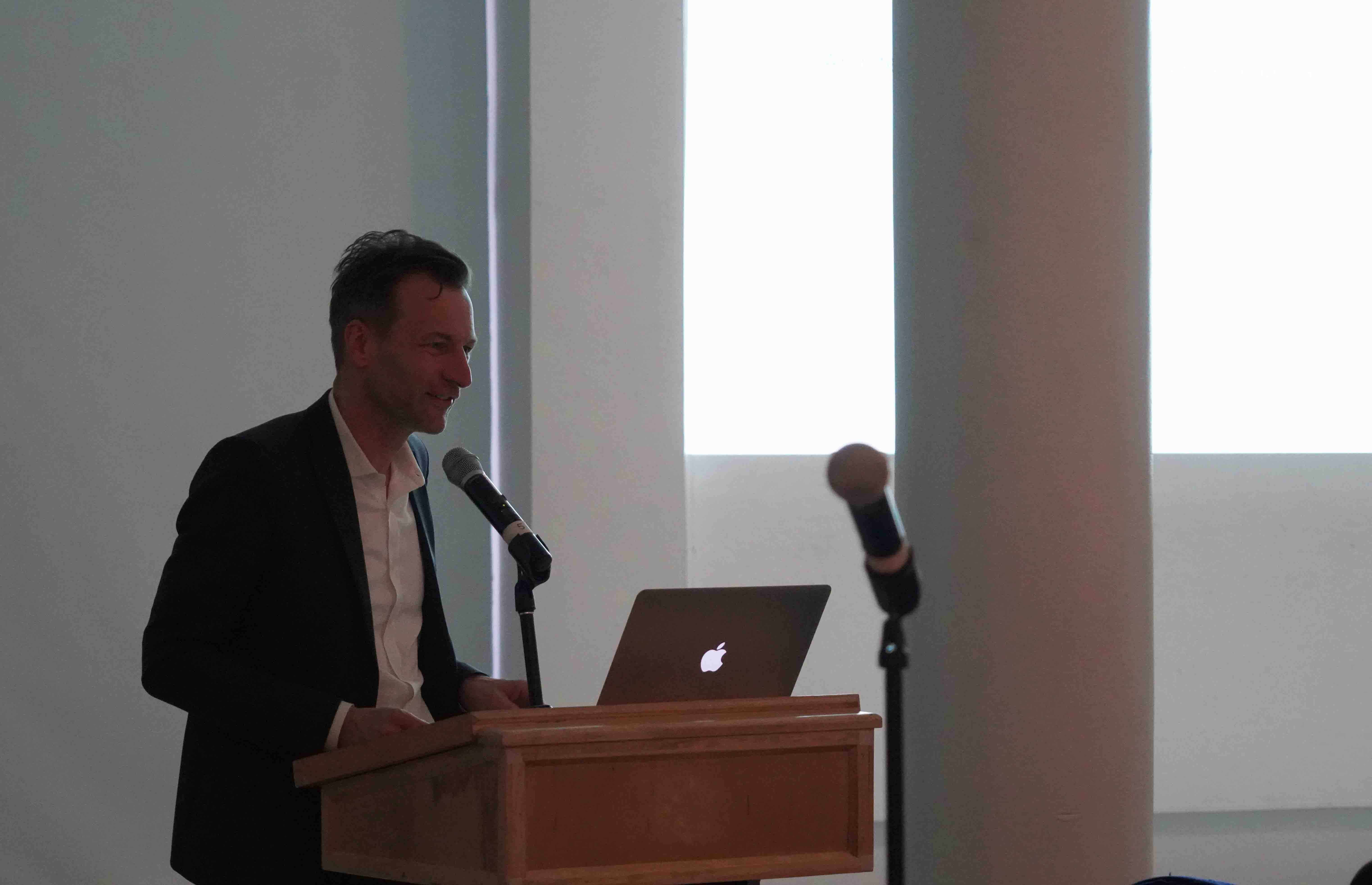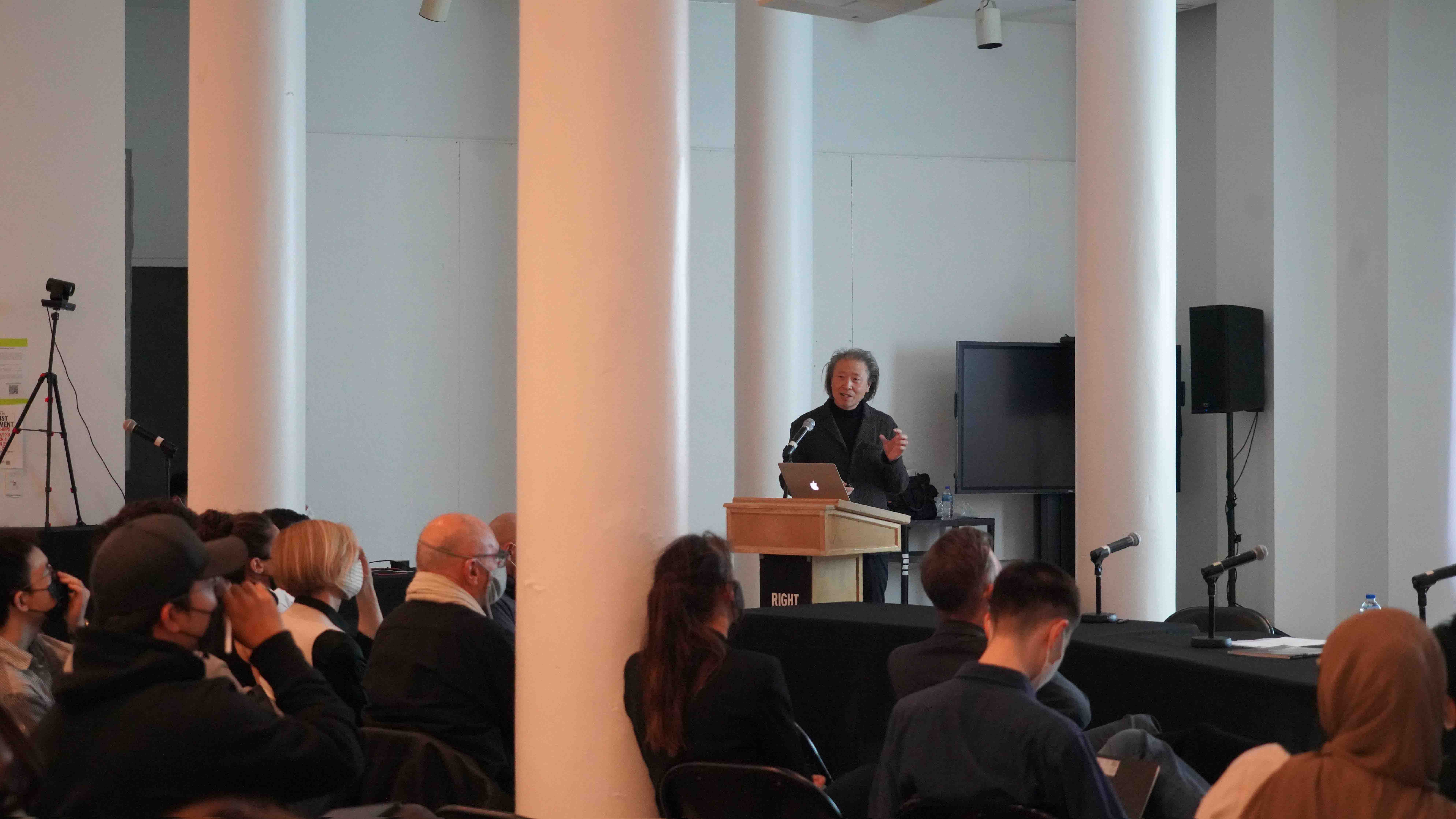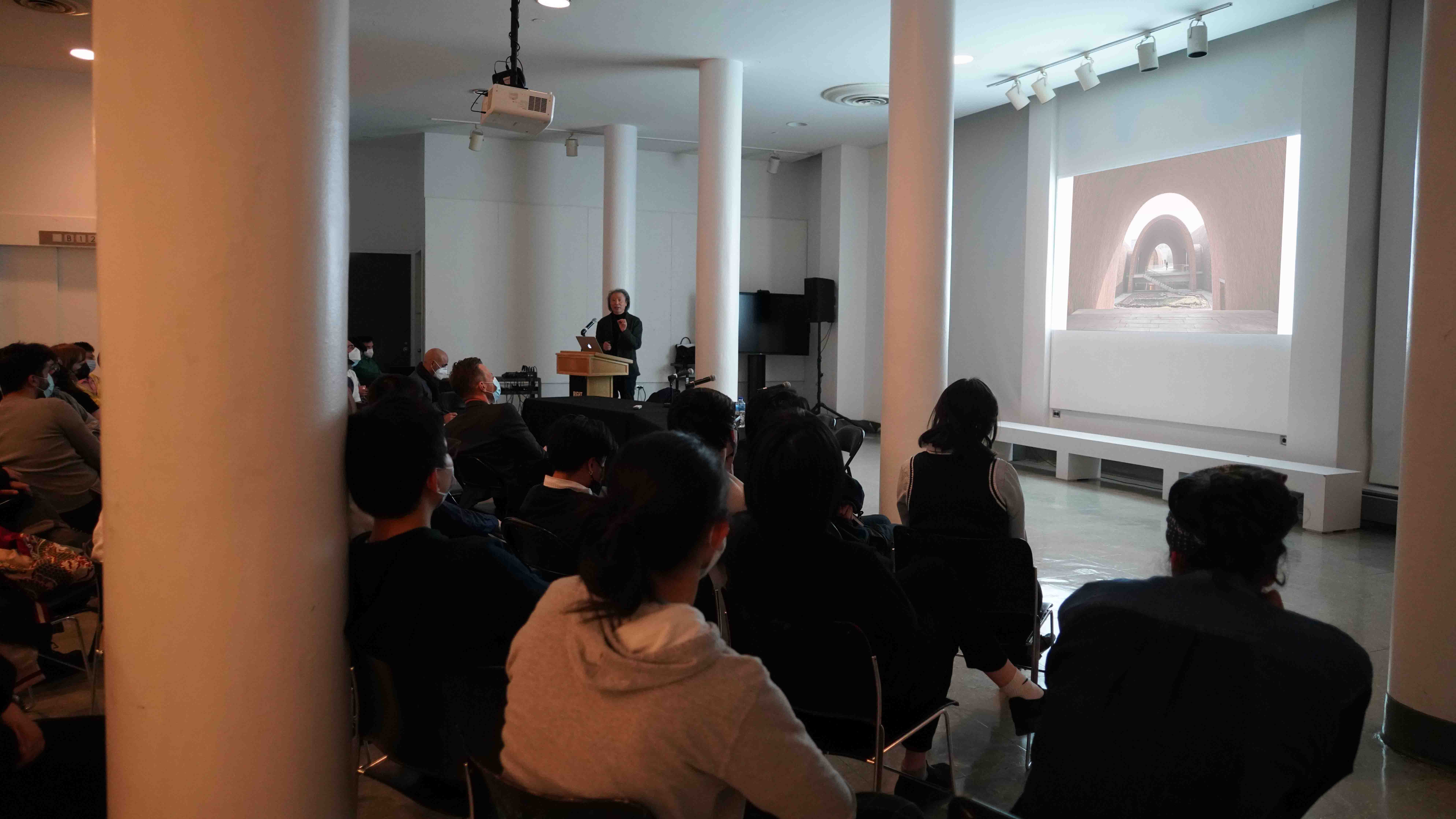Zhu Pei was invited to participate in The Cooper Union Public Lecture Series of the 2021-2022 academic year, which co-organized by MoMA
2022.03.25
On the evening of March 22, Zhu Pei was invited to attend The Cooper Union Public Lecture Series and delivered a lecture titled “Architecture of Nature, an experimental approach”. This lecture was co-organized by MoMA, the Department of Architecture and Design. At the beginning, Dean Nader Tehrani welcomed all the audience and introduced Martino Stierli, The Philip Johnson Chief Curator of Architecture and Design at MoMA. Then Martino introduced the exhibition “Reuse, Renew, Recycle: Recent Architecture from China” and highlighted its significance. Zhu Pei’s Imperial Kiln Museum is one of the selected works in this exhibition. Meanwhile, Martino introduced Zhu Pei and invited him to share his recent works.

In Zhu Pei’s talk, he explained that the design philosophy of “Architecture of Nature” is mainly driven by the most significant challenges faced by human being are global climate change and the rupture of regional cultures. “Architecture of Nature” concerns neither with landscape and green architecture nor vernacular architecture, rather it is a natural attitude with ecological and cultural sustainability. It also explores the natural constructive principles behind architecture to discover the source of feelings rooted in specific culture, and to define the relationships among architecture, culture, geography, and climate. The dual paths of Roots (Culture and Climate) and Creation (Creating new experience) are the core concept of "Architecture of Nature", which are presented through five dimensions: Site and Orientation, Structure and Form, Sponge Architecture, Cave and Nest, and Incomplete Integrity.


Pei focused on how the design of the Imperial Kiln Museum responds to the local climate and culture, and how the museum carefully integrates with history, ruins site, culture and people’s way of life while creating new experiences. In addition, Pei presented some images of ‘material’ propositions from other recent projects to explain how his design philosophy gets translated across different tectonic terrains. Selected projects referenced are Shou County Culture and Art Center (2019), Zibo OCT Art Center (2020), and 798 CUBE Art Museum (2020).

The recorded video of the lecture will be posted on Cooper Union website soon.
Zhu Pei was invited to participate in The Cooper Union Public Lecture Series of the 2021-2022 academic year, which co-organized by MoMA
2022.03.25
On the evening of March 22, Zhu Pei was invited to attend The Cooper Union Public Lecture Series and delivered a lecture titled “Architecture of Nature, an experimental approach”. This lecture was co-organized by MoMA, the Department of Architecture and Design. At the beginning, Dean Nader Tehrani welcomed all the audience and introduced Martino Stierli, The Philip Johnson Chief Curator of Architecture and Design at MoMA. Then Martino introduced the exhibition “Reuse, Renew, Recycle: Recent Architecture from China” and highlighted its significance. Zhu Pei’s Imperial Kiln Museum is one of the selected works in this exhibition. Meanwhile, Martino introduced Zhu Pei and invited him to share his recent works.

In Zhu Pei’s talk, he explained that the design philosophy of “Architecture of Nature” is mainly driven by the most significant challenges faced by human being are global climate change and the rupture of regional cultures. “Architecture of Nature” concerns neither with landscape and green architecture nor vernacular architecture, rather it is a natural attitude with ecological and cultural sustainability. It also explores the natural constructive principles behind architecture to discover the source of feelings rooted in specific culture, and to define the relationships among architecture, culture, geography, and climate. The dual paths of Roots (Culture and Climate) and Creation (Creating new experience) are the core concept of "Architecture of Nature", which are presented through five dimensions: Site and Orientation, Structure and Form, Sponge Architecture, Cave and Nest, and Incomplete Integrity.


Pei focused on how the design of the Imperial Kiln Museum responds to the local climate and culture, and how the museum carefully integrates with history, ruins site, culture and people’s way of life while creating new experiences. In addition, Pei presented some images of ‘material’ propositions from other recent projects to explain how his design philosophy gets translated across different tectonic terrains. Selected projects referenced are Shou County Culture and Art Center (2019), Zibo OCT Art Center (2020), and 798 CUBE Art Museum (2020).

The recorded video of the lecture will be posted on Cooper Union website soon.